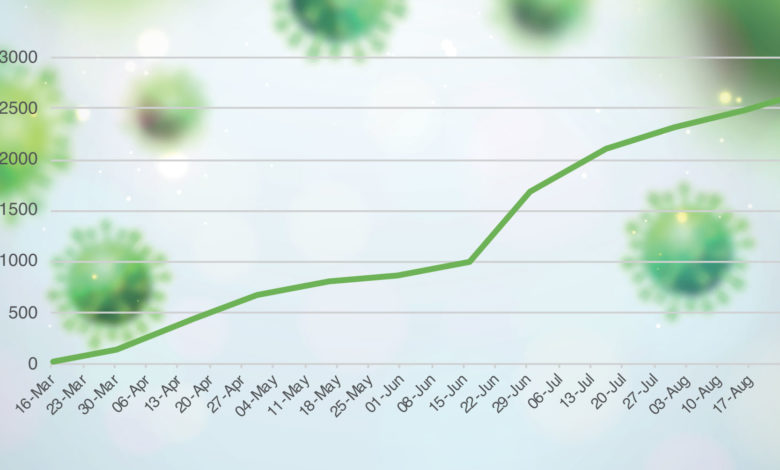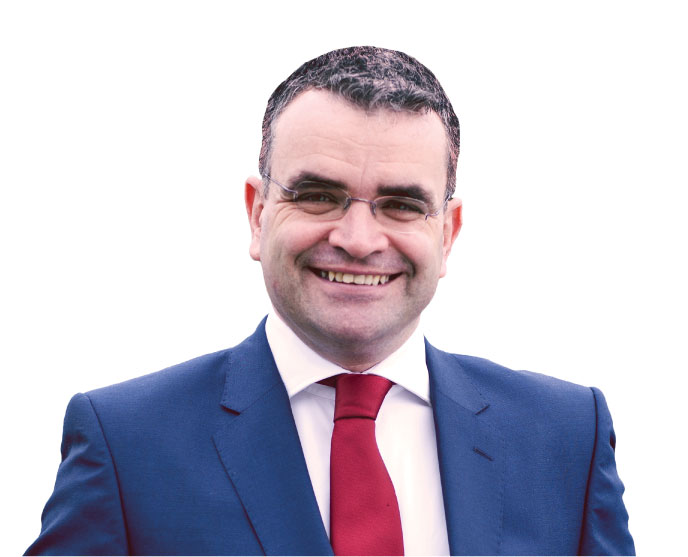Health crisis now political

The Government’s move to tighten restrictions in the wake of a spike in Covid-19 cases has been deeply undermined by the actions of those who where embroiled in ‘Golfgate’, writes David Whelan.
In a month where the Government took radical action to reverse the lifting of restrictions in an effort to stem a worrying spike in the number of Covid-19 cases, the severity of the challenge facing the health service has been overshadowed by a political crisis.
Health Minister Stephen Donnelly TD described the country as at “tipping point” as the Cabinet announced the reversal of some of its lockdown relaxation measures amidst a rise in cases across the island, including the extension of local lockdowns.
Taoiseach Micheál Martin said that the rise, which saw a jump from 61 new reported cases in a week in early August to 533 new cases in mid-August was “deeply concerning” and the Government is now finalising a roadmap for resilience and recovery, a short- to medium-term plan aimed at bringing greater levels of certainty on the economic and social aspects of living with Covid-19, in advance of an announcement of a review of restrictions on 13 September 2020.
Any strategy would need to contain a clear and concise vision of how society and the economy moves forward. Undoubtedly, public opinion has shifted somewhat from the compliance evident in the early stage of the pandemic and society recognises the lasting consequences of living with Covid-19. The Government’s original four-stage plan provided benchmarks towards a sense of normality, however, the recent backward steps have exacerbated a weariness among the general public.
Mixed, or at least ambiguous messaging, coming from leading public figures has not helped in bolstering public confidence. Gaps between expert advice and political moves to balance economic concerns are emerging and a poor communications strategy within the newly formed coalition has been evident. Only in recent weeks has it become clear that the Government will seek to manage the spread of the virus, now deemed necessary, over initial hopes of eradicating the virus on the island.
If the Government’s efforts are to retain public support, then it must articulate clearer goals and a pathway to reach those in a coherent fashion.
On 26 August 2020, Director General of the HSE Paul Reid outlined the scale of the challenge facing Ireland’s management of the pandemic by pointing out that the significant uplift of 1,269 cases in the previous fortnight compared to 264 cases for the same period in June. He also highlighted that more than 750,000 tests had been completed and that the 55,000 tests in the week to 26 August was the highest recorded by the HSE since April.

Reid, who was giving evidence to the Special Committee on Covid-19 Response, explained that the HSE was finalising a new model for testing and tracing to “set out a more permanent workforce and to implement further process and technology changes”. He told politicians that despite the surge in cases, hospitals have not yet experienced a surge in admissions but that the HSE had a plan to deal with an increase in hospitalisation.
However, Reid said that the number of testing centres had been scaled back up to 28 centres across the country because of rising cases, but the use of the 48 centres available would not be the best use of teams, currently.
Ireland has taken a more cautious approach to the easing of regulations than most countries across Europe, having already twice delayed the move to the final phase of the exiting lockdown phase and now reverted back to stricter limitations on gatherings, travel, business openings and implemented localised lockdowns.
The objective of the restrictions was facilitating the return to school of teachers and students at the start of September. The Government’s planning has switched focus from a second surge to managing peaks and troughs. The HSE’s Chief Clinical Officer Colm Henry, has stated that cases in schools are “inevitable” and that outbreaks were possible in the reopening of schools.
A spike in cases is also being managed in the North. 119 people tested positive in one day at the end of August for instance, the highest daily rise since early April. The Health Minister in the North, Robin Swann, also reversed the lifting of restrictions but not to the same extent as the Republic. The differences in approach from the two governments has raised concerns, with recognition that the public health approach should take an all-island approach.
‘Golfgate’
The Government’s efforts to restrict people’s movements in order to manage the spike in cases has been deeply undermined by the political fallout of ‘golfgate’. Shortly after new Agriculture Minister Dara Calleary TD fronted media interviews on the necessity of the Government’s new restrictions, he was forced to resign his portfolio and his position as deputy leader of Fianna Fáil, after it was revealed he was one of over 80 attendees at an Oireachtas Golf Society dinner in Galway.
“The Government’s original four stage plan provided benchmarks towards a sense of normality, however, the recent backward steps have exacerbated a weariness among the general public.”
Phil Hogan, the then EU Trade Commissioner also left his position, after initially defending his actions.
The event breached government guidelines and included a guest list of high-profile attendees including politicians, judges and lobbyists. The event which took place just a day after the restrictions were announced, has since dominated the political discourse, with the Taoiseach stating that Hogan had “undermined the whole approach to public health in Ireland” with his movements around the country in recent weeks.
Amongst those who have acknowledged that the political events had undermined the public health message was Chair of the Irish Epidemiology Modelling Advisory Group, Philip Nolan. Stating that he was fully aware of how disappointing and frustrating recent events have been and that a step backward has been taken, Nolan warned that Ireland was at an important juncture when it comes to keeping the virus under control and that the situation was not irreversible.
Ensuring that the Government retains the public’s confidence as it attempts to set out a future pathway of economic and societal recovery will be critical to efforts to manage the future spread of the virus.





